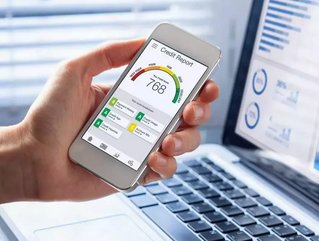Experian: alternative data sets are crucial to modern credit

As financial difficulties become a reality for millions, the credit industry could play a significant role in healing COVID-19-stricken economies.
FinTech Magazine (FM) held a Q&A with Alpa Lally (AL), Vice President, Data Business, Consumer Information Services at Experian North America, to find out how the credit ecosystem has evolved, which technologies are being leveraged, and the importance of alternative data sets.
FM: Please describe your role at Experian.
AL: I joined Experian in 2012. In my role, I oversee product management related to Experian’s traditional credit and alternative data assets, which includes, but is not limited to, credit scoring models and tools.
FM: How has the credit ecosystem evolved in recent times?
AL: We’ve seen tremendous growth in the types and diversity of predictive data attributes being used to assess consumer creditworthiness in lending decisions. This evolution is good news for lenders and consumers alike.
At the same time, we’ve seen a shift in consumers’ willingness to contribute additional information if it increases their opportunities for credit access. One example is the success we’ve seen with Experian Boost, a free, first-of-its-kind tool launched in March 2019.
[Boost] allows consumers to contribute their on-time telecom and utility payments, including Netflix, directly to their credit report for an opportunity to improve their credit scores. This marks a move toward greater consumer control in the credit scoring process.
FM: Experian operates in an incredibly data-rich field. How are you leveraging that information?
AL: Artificial intelligence and machine learning have been game changers in extracting meaningful insights from data.
Our integrated fraud offering, Sure Profile, helps combat synthetic identity fraud by determining the authenticity of an identity used on a credit application. It does this by pinning the personally identifiable information included on an applicant’s credit report against Experian’s exclusive traditional and alternative data attributes.
In real-time, lenders will receive a ‘yes’ or ‘no’ indicator on the requested credit report noting whether the identity is a synthetic identity or not. This combination of data and technology has the potential to authenticate identities, increase application approvals and prevent significant lender losses.
Experian is so confident in our solution that we’ll share in loan losses on assured profiles with our clients if we get it wrong, which is a first for the industry.
FM: Why are alternative data sets crucial to modern credit?
AL: As an immigrant to the United States, I understand the challenges of living with a limited credit history. After arriving [from Canada], it didn’t take long for me to discover a principle that still rings true: an established credit history is the gatekeeper to financial opportunity in America.
I know that my story is a common one with more than 100 million people in America who lack access to fair and affordable credit, either due to limited or no credit histories or subprime credit scores.
Someone with a limited credit history may be making consistent, on-time payments for things such their cable, utilities, internet or mobile phone. These payment histories can demonstrate that an applicant can afford to repay a loan they’ve applied for, even in the absence of enough traditional financial information.
By using alternative data in conjunction with traditional credit data, lenders can mitigate risk and keep the credit economy flowing while helping consumers access the financial services they need.
FM: How are you ensuring that the collected data is used ethically?
AL: At Experian, we believe we have a special responsibility to consumers, especially when it comes to creating greater financial inclusion.
All of the data used to assess the creditworthiness of a consumer is regulated by the Fair Credit Reporting Act, meaning that it is displayable, disputable and correctable by consumers.
FM: What role could the credit industry play in healing the post-COVID-19 economy?
AL: Improving financial access for thin-file and credit invisible consumers will play an integral role in our road to economic recovery.
While it is difficult to predict when the economy will return to pre-COVID-19 levels, it has never been more important to protect consumers’ financial health and maintain the integrity and accessibility of the credit economy.
Combining traditional credit data with alternative data to access consumer creditworthiness plays a critical role in achieving this. Doing so will help determine a consumer’s stability, ability and willingness to repay during the current financial landscape and beyond.
- Experian Sheds Light on the Changing Fraud LandscapeFraud & ID Verification
- Experian Marketplace: giving financial power to consumersFinancial Services (FinServ)
- Experian Marketplace: giving financial power to consumersFinancial Services (FinServ)
- Refinitiv webinar: Reimagining banking post-COVID-19Sustainability






